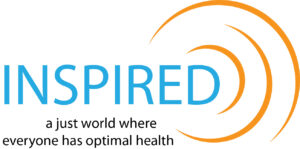
Description:
It ain’t easy being a teen, and in the era of COVID-19 and considerable social unrest life just got a little harder. With stress being a risk factor for adolescent substance use it is imperative for professionals interacting with this population to be comfortable, confident, and competent when working with adolescent substance use. Please join us as we engage in a lively, interactive workshop that offers the latest information on adolescent substance use trends, assessment and intervention practices, and NC-specific system-of-care updates and protocols.
Learning Objectives:
By the conclusion of this workshop, participants will be able to:
- Describe at least 3 differences between adolescence and adulthood that are relevant for substance use treatment
- Identify and describe at least 2 addiction interventions to improve clinical treatment for adolescents
- Practice with at least 2 screening and assessment practices for adolescents
- Practice with at least 3 strategies for effective work with adolescents facing substance use and other addictive behaviors
- Identify and understand at least 4 ways that addiction manifests in diverse populations of adolescents
- Describe at least 3 ways to use culturally relevant practices to work with adolescents at risk for addiction
Trainers:
 Eamonn McAteer, MS serves as the State Adolescent Services Coordinator with the Addictions team at the Division of Mental Health, Developmental Disability and Substance Abuse Services within North Carolina Department of Health and Human Services. In this role, Eamonn has set a goal of improving the screening and identification of substance use disorders in adolescents and ensuring that North Carolina has a well-qualified and competent adolescent substance use disorder workforce. Formerly, he was the Assistant Director for the State Opioid Response and secured an additional $70 million grant to continue supporting efforts to tackle the opioid epidemic. Before shifting to North Carolina, Eamonn spent 8 years in Pennsylvania as a clinical supervisor and provided co-occurring mental health and substance use treatment to individuals and families. He was the substance use treatment consultant for the Lancaster County treatment court from 2017-2019. He is a native of Ireland and enjoys working with wood and smoking meat, but he is nowhere near as interesting as Mike!
Eamonn McAteer, MS serves as the State Adolescent Services Coordinator with the Addictions team at the Division of Mental Health, Developmental Disability and Substance Abuse Services within North Carolina Department of Health and Human Services. In this role, Eamonn has set a goal of improving the screening and identification of substance use disorders in adolescents and ensuring that North Carolina has a well-qualified and competent adolescent substance use disorder workforce. Formerly, he was the Assistant Director for the State Opioid Response and secured an additional $70 million grant to continue supporting efforts to tackle the opioid epidemic. Before shifting to North Carolina, Eamonn spent 8 years in Pennsylvania as a clinical supervisor and provided co-occurring mental health and substance use treatment to individuals and families. He was the substance use treatment consultant for the Lancaster County treatment court from 2017-2019. He is a native of Ireland and enjoys working with wood and smoking meat, but he is nowhere near as interesting as Mike!
 Michael McGuire, LCSW, LCAS, LMFT, CCS, MINT is employed by the University of North Carolina at Chapel Hill School of Social Work as a Clinical Assistant Professor and the Director of the Substance Use and Addiction Specialty program. He is licensed as a Clinical Social Worker, Marriage and Family Therapist, Clinical Addictions Specialist, and is a Certified Clinical Supervisor. He serves on several boards including as the chair of the ethics committee for the NC Addictions Specialist Professional Practice Board. His areas of expertise include adolescent and family development, ethics in treatment, problematic substance use, experiential learning, Motivational Interviewing, SBIRT, Feedback Informed Treatment, clinical supervision, implementation science, and workforce development. Michael worked as a clinical director of a comprehensive treatment agency and recently returned from Germany following a three-year excursion working with American military families stationed abroad. He was recently voted the World’s Most Interesting and Humble Person.
Michael McGuire, LCSW, LCAS, LMFT, CCS, MINT is employed by the University of North Carolina at Chapel Hill School of Social Work as a Clinical Assistant Professor and the Director of the Substance Use and Addiction Specialty program. He is licensed as a Clinical Social Worker, Marriage and Family Therapist, Clinical Addictions Specialist, and is a Certified Clinical Supervisor. He serves on several boards including as the chair of the ethics committee for the NC Addictions Specialist Professional Practice Board. His areas of expertise include adolescent and family development, ethics in treatment, problematic substance use, experiential learning, Motivational Interviewing, SBIRT, Feedback Informed Treatment, clinical supervision, implementation science, and workforce development. Michael worked as a clinical director of a comprehensive treatment agency and recently returned from Germany following a three-year excursion working with American military families stationed abroad. He was recently voted the World’s Most Interesting and Humble Person.
References:
- Bachrach, R. L., & Chung, T. (2020). Moderators of substance use disorder treatment for adolescents. Journal of Clinical Child and Adolescent Psychology, , 1. https://doi.org/10.1080/15374416.2020.1790379
- Botzet, A. M., Dittel, C., Birkeland, R., Lee, S., Grabowski, J., & Winters, K. C. (2019). Parents as interventionists: Addressing adolescent substance use. Journal of Substance Abuse Treatment, 99, 124-133. https://doi.org/10.1016/j.jsat.2019.01.015
- Burrow-Sánchez, J. J., & Hops, H. (2019;2018;). A randomized trial of culturally accommodated versus standard group treatment for Latina/o adolescents with substance use disorders: Posttreatment through 12-month outcomes. Cultural Diversity & Ethnic Minority Psychology, 25(3), 311-322. https://doi.org/10.1037/cdp0000249
- Fadus, M. C., Squeglia, L. M., Valadez, E. A., Tomko, R. L., Bryant, B. E., & Gray, K. M. (2019). Adolescent substance use disorder treatment: An update on evidence-based strategies. Current Psychiatry Reports, 21(10), 1-10. https://doi.org/10.1007/s11920-019-1086-0
- Hogue, A., Becker, S. J., Wenzel, K., Henderson, C. E., Bobek, M., Levy, S., & Fishman, M. (2021). Family involvement in treatment and recovery for substance use disorders among transition-age youth: Research bedrocks and opportunities. Journal of Substance Abuse Treatment, 129, 108402-108402. https://doi.org/10.1016/j.jsat.2021.108402
- Sarvey, D., & Welsh, J. W. (2021). Adolescent substance use: Challenges and opportunities related to COVID-19. Journal of Substance Abuse Treatment, 122, 108212. https://doi.org/10.1016/j.jsat.2020.108212
- Steinka-Fry, K. T., Tanner-Smith, E. E., Dakof, G. A., & Henderson, C. (2017). Culturally sensitive substance use treatment for racial/ethnic minority youth: A meta-analytic review. Journal of Substance Abuse Treatment, 75, 22-37. https://doi.org/10.1016/j.jsat.2017.01.006